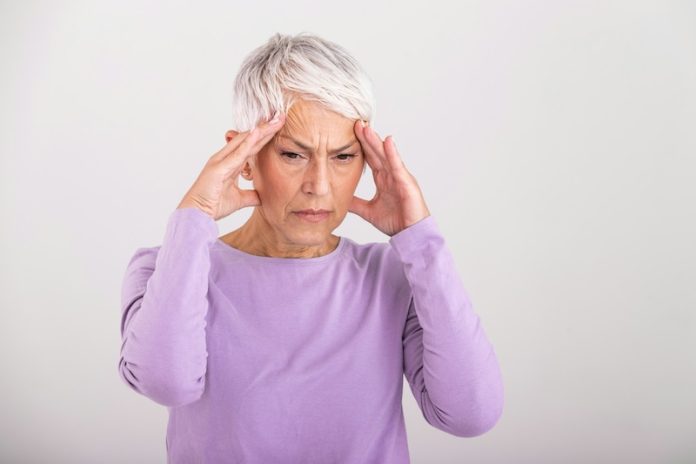
Dementia is a condition that affects memory, thinking, and the ability to perform everyday tasks. As it progresses, it can significantly impact the lives of those affected and their families.
One of the most distressing symptoms of dementia is memory loss, which can make it difficult for people to remember recent events, recognize loved ones, or recall familiar places.
While dementia currently has no cure, there are treatment options that can help manage memory loss and other symptoms. Understanding these options can help people with dementia and their caregivers make informed choices about care and quality of life.
One of the most common treatment options for memory loss in dementia is medication. The two primary types of drugs used are cholinesterase inhibitors and memantine.
Cholinesterase inhibitors, such as donepezil, rivastigmine, and galantamine, work by increasing levels of a brain chemical called acetylcholine, which helps with memory and thinking.
Research published in the Journal of the American Medical Association has shown that these medications can slow down the progression of memory loss in people with mild to moderate dementia, particularly those with Alzheimer’s disease, the most common form of dementia.
However, these drugs do not stop or reverse dementia; they only provide temporary symptom relief and may work differently for each person.
Memantine, another medication often used for moderate to severe dementia, works differently. It helps protect brain cells from excess amounts of a chemical called glutamate, which can damage cells when levels are too high.
Studies suggest that memantine can improve daily function and memory in some people with dementia, helping them maintain independence longer. A review in The Cochrane Database of Systematic Reviews found that memantine may benefit patients by reducing symptoms of confusion and agitation.
It is often used alone or combined with cholinesterase inhibitors, depending on the stage of dementia and a person’s individual needs.
In addition to medication, non-drug therapies play an important role in managing memory loss in dementia.
Cognitive stimulation therapy (CST) is a structured program designed to improve memory and thinking through engaging activities, such as word games, puzzles, and reminiscence exercises.
Research published in The British Journal of Psychiatry found that CST can have a positive impact on memory, language skills, and quality of life for people with mild to moderate dementia.
By encouraging mental activity and social interaction, CST can help stimulate the brain, although it doesn’t stop the disease’s progression.
Another promising approach is lifestyle modification, which involves changes in diet, exercise, and social activities. Studies have shown that physical activity, like walking or light aerobic exercises, can improve blood flow to the brain and promote the growth of new brain cells.
In fact, a study published in The Lancet found that regular physical exercise is associated with a lower risk of cognitive decline and may help improve memory and thinking in people with dementia.
Similarly, a healthy diet that includes plenty of fruits, vegetables, whole grains, and omega-3 fatty acids, like those found in fish, can provide nutrients that support brain health.
Maintaining a balanced diet and engaging in physical activity are non-invasive and can be especially beneficial when used alongside other treatments.
Social engagement and mental activities also make a difference. Studies show that staying socially active can slow memory loss and reduce feelings of loneliness and depression, which are common in people with dementia.
Simple activities like spending time with loved ones, participating in group events, or engaging in hobbies can provide mental stimulation.
The American Journal of Geriatric Psychiatry published research suggesting that social interaction and enjoyable activities reduce stress and help maintain mental functions, which can improve overall well-being for people with dementia.
Emerging treatments, including experimental therapies and alternative approaches, are also being explored.
For example, researchers are studying the effects of brain stimulation techniques, like transcranial magnetic stimulation (TMS), which uses magnetic fields to stimulate specific brain areas involved in memory.
While research is ongoing, early findings suggest that TMS may hold potential in improving cognitive function. Nutritional supplements, like vitamin E and omega-3 fatty acids, are sometimes recommended, although evidence supporting their effectiveness is mixed.
For instance, some studies have suggested that vitamin E may have a modest benefit in slowing memory loss, but further research is needed to confirm these findings.
Caregivers play a crucial role in helping people with dementia manage memory loss. They can help establish routines, organize daily activities, and create reminders that make life easier for their loved ones.
Simple strategies, such as using memory aids (like notes or alarms) or keeping a daily schedule, can support memory and reduce frustration. Training for caregivers can provide them with techniques to support memory care effectively while also managing their own stress.
While there is no cure for dementia, combining medication, cognitive therapies, lifestyle changes, and supportive care can significantly improve quality of life.
These treatments may not completely restore lost memory but can help maintain independence and well-being for as long as possible.
As research continues, new therapies and preventive measures are likely to emerge, bringing hope for better ways to manage and treat dementia in the future.
If you care about Alzheimer’s, please read studies about the likely cause of Alzheimer’s disease , and new non-drug treatment that could help prevent Alzheimer’s.
For more information about brain health, please see recent studies about diet that may help prevent Alzheimer’s, and results showing some dementia cases could be prevented by changing these 12 things.
Copyright © 2024 Knowridge Science Report. All rights reserved.



